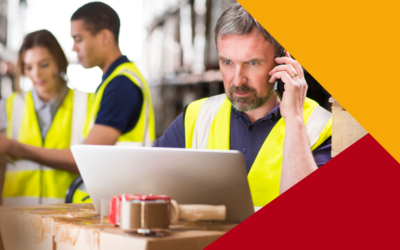As we look to 2023 and beyond, businesses are looking for smarter procurement solutions; solutions that provide sustainability throughout the whole procurement process.
Solutions that highlight accountability, transparency, ethical behaviours, innovation, continual improvement, healthy work environments, and so much more at every, single, stage.
Sustainable procurement is now essential to your corporate social responsibility, as businesses, suppliers, employees, and consumers demand and expect more.
However, with an increased reliance on standards, businesses must have a robust understanding of sustainable procurement to prove their Corporate Social Responsibility (CSR), have systems and processes in place to monitor all areas of the supply chain, and methods and tools to increase engagement and communication throughout.
So, where do we start?
What is sustainable procurement?
To GHL, sustainable procurement considers all environmental, financial, governance and social factors relating to the development/procurement of products and services.
As procurement is outcome-focused, all areas of your procurement process should positively impact a product/project’s entire lifecycle, offering benefits to the organisation, economy, society, and the environment.
This means introducing sustainability at every stage throughout the procurement process, i.e., working with the right suppliers, managing production to minimise waste, and achieving value for money while continuing to meet customer demands.
Building Sustainability into the Procurement Process
If we break the procurement process into key stages, we can see how we can be more sustainable, the importance of sustainability at each stage, and the benefits these changes can bring.
Starting with:
Identifying the need for the product/service – when looking at new products or services to offer consumers, we must bear in mind that consumers are now choosing brands, companies, and products that have good environmental and social impact. This means having a plan and rationale for selecting the products and services you offer/want to offer is essential.
Then comes…
Product sourcing – sustainable procurement looks at how you can reduce the environmental impact on your supply chain by identifying products that use responsibly sourced materials and meet all stringent regulations and guidelines. This particular area can open up great opportunities for new partnerships, new and innovative ideas, and increased opportunities.
Vender selection – building strong, good relationships with the right vendors allows you to ensure the right practices are embedded at every stage. However, you must be able to identify problem suppliers and have the ability to address any weak areas in vender processes, work environments, policies, etc.
Negotiating terms of contract – you must have the skills, knowledge, and experience to negotiate contract terms that are suitable and sustainable to all parties. For example, are you providing clear expectations and baselines for monitoring and managing performance? This is critical to the client/contractor relationship and can be extremely time-consuming.
Scheduling works – what external factors/influences do you have to take into account? For example, are you aware of the effects on production in China during Chinese New Year? Are there any internal factors and regulations to consider? Do you know what these are or where to find out?
Quality checking – quality checking supports sustainability by improving efficiencies, improving productivity, and protecting your brand. It can also support waste reduction and can reduce risk. But, and this is a big but, you must have the right processes and checks in place to monitor and manage quality control effectively, with the first and most crucial step in this process, sampling.
Logistics/delivery – have you considered all import and export options and charges? Do you know who you are working with? What are their policies? Their Corporate Social Responsibility principles and strategy? Can you streamline your process by streamlining suppliers in your network?
Benefits of Sustainability in Procurement
- Increased engagement
- Attract and retain better talent
- Reduce costs (in all areas), and increase revenue
- Reduce risk – protecting against a range of challenges that could potentially disrupt the supply chain
- Protect business reputation
- Provides greater flexibility
- Keeps you ahead of the competition
- Increases business growth.
How GHL Can Help
We know that building a sustainable procurement process takes time, money, and years of experience.
We also understand that sustainability can be difficult to monitor with poor environmental and labour practices going unnoticed as you aren’t there 24/7, you don’t have the tools or even the data to know where to start, and if you are made aware, there is often difficulty in identifying the right actions to take.
Ultimately, it can be costly for businesses to get the most effective endpoint…but it doesn’t have to be.
At GHL, we have the processes and systems in place to fast-track you on your way to complete sustainability.
Using our years of experience we have already optimised the process, learnt, and built great networks and relationships with suppliers, factory owners, quality assurance managers, and more.
We have robust foundations in place. We know our markets, and we take a holistic approach to the complete procurement process – it’s what sets us apart.
Do you want a winning formula?



